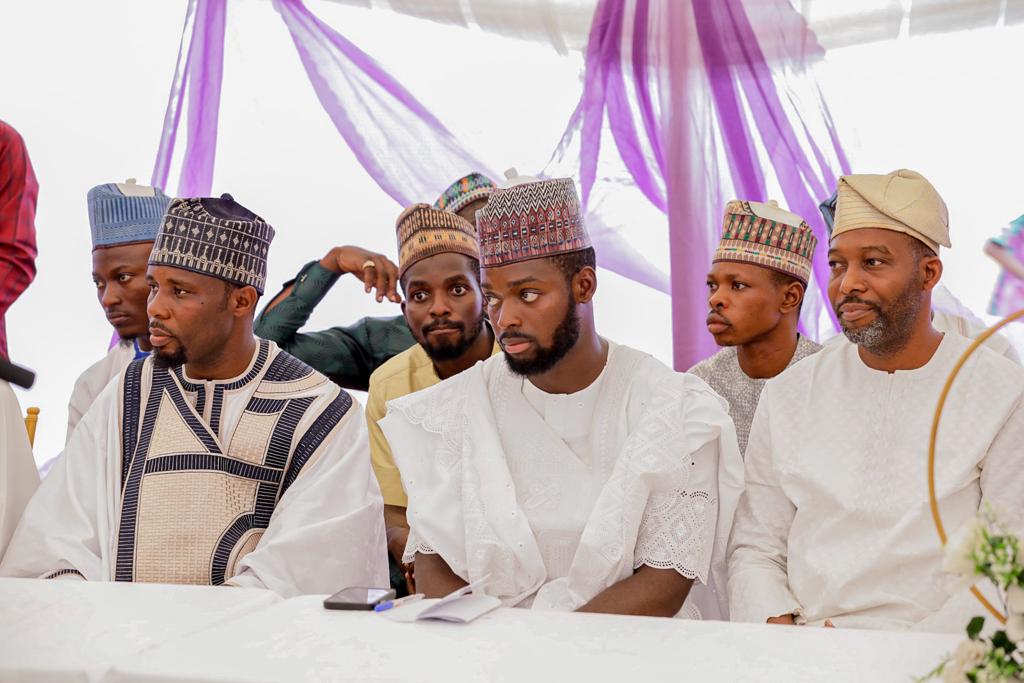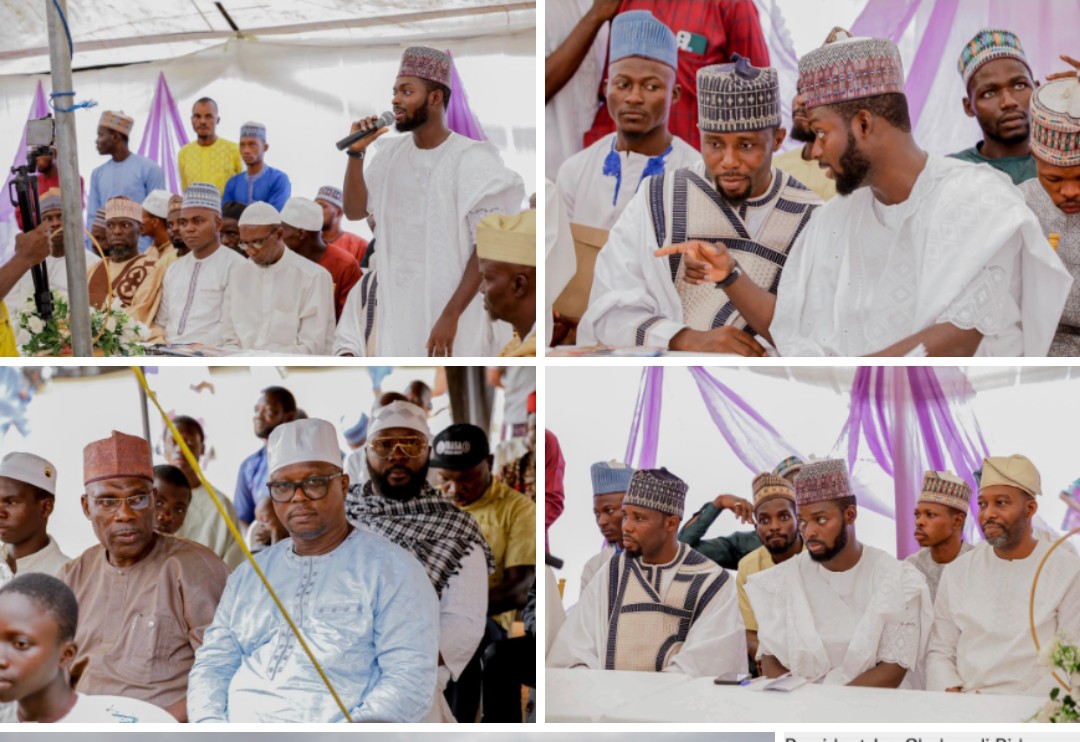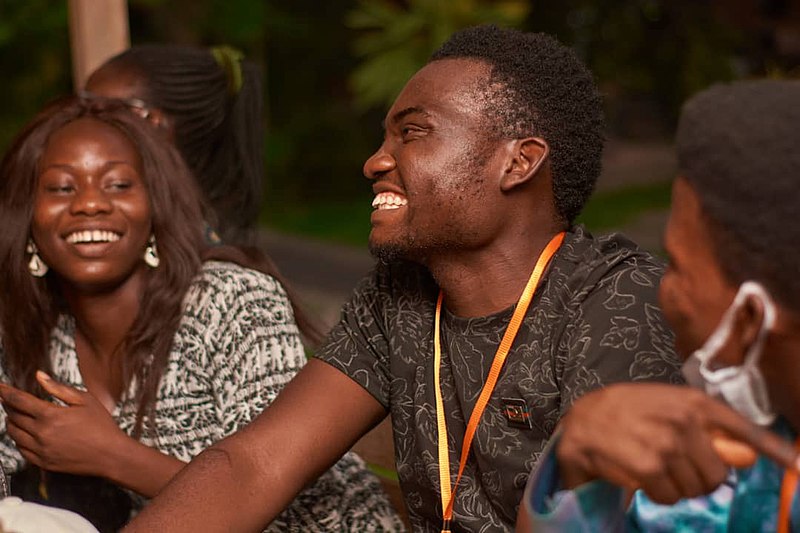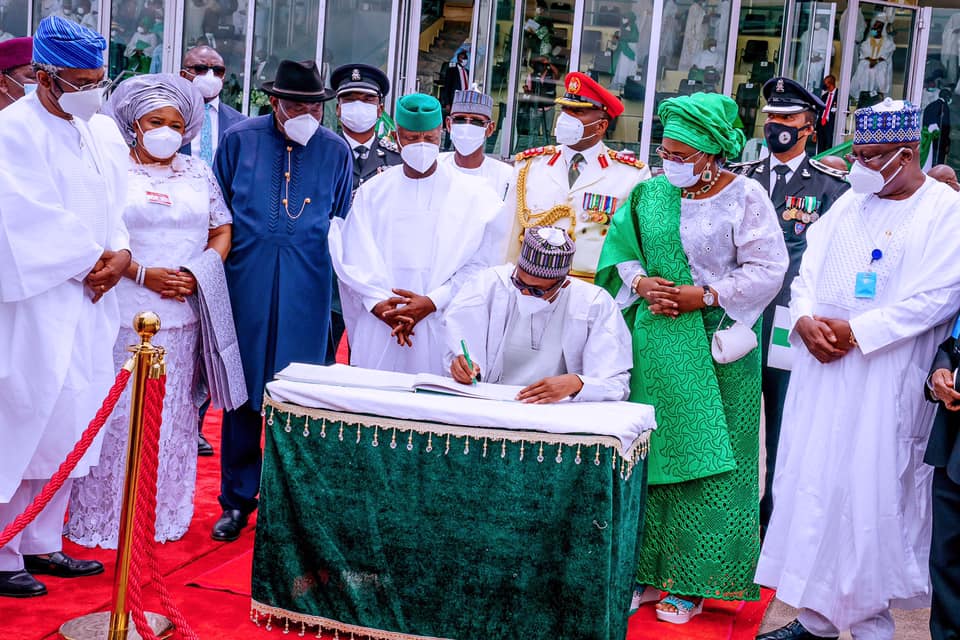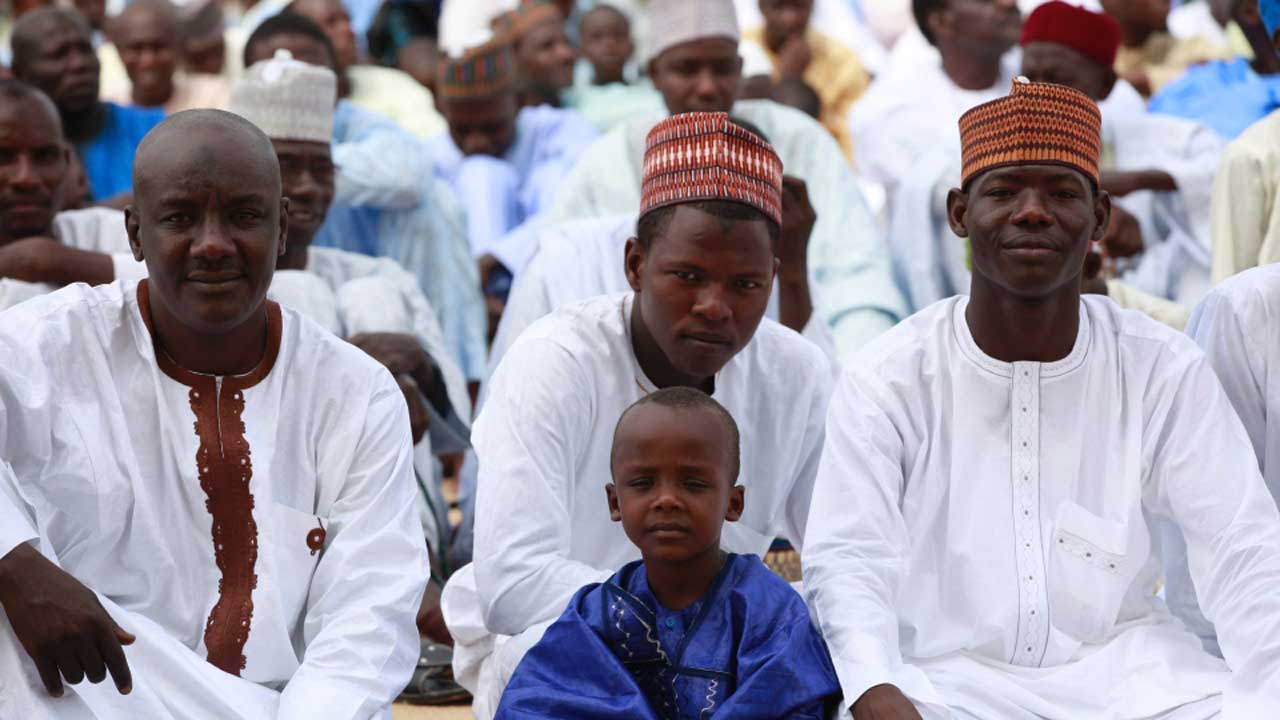
Nigeria, with its vibrant cultural tapestry, is a nation where the intertwining threads of youth and religion shape the narrative of identity, purpose, and community. In this article, we delve into the multifaceted relationship between the youth and religion in Nigeria, exploring the challenges, opportunities, and the dynamic evolution of faith in the lives of the younger generation.
Diverse Faiths And Identities - Navigating The Spiritual Mosaic Of Nigeria
Nigeria, a nation pulsating with cultural vibrancy, stands as a tapestry woven with diverse religious threads. Predominantly characterized by Islam and Christianity, complemented by a tapestry of various traditional African religions, the religious landscape of Nigeria creates a rich and intricate backdrop against which the identities of its youth are shaped.
Islam And Christianity
Islam and Christianity stand as the primary faiths in Nigeria, shaping not just physical spaces but also the hearts and minds of its people. Amidst the harmonious interplay of these two predominant religions, the youth find themselves at a cultural crossroads, contributing to the intricate mosaic of beliefs and practices that define their identities. This dynamic interplay is a testament to the rich religious diversity shaping the Nigerian youth's worldview.
To explore the spiritual journey of teenagers in the context of Christianity, check out Fellowship Bible Church's Bible for Teenagers.
Traditional African Religions - An Integral Thread
Woven into this religious tapestry are the vibrant threads of traditional African religions. These indigenous belief systems, deeply rooted in the cultural soil of Nigeria, add an extra layer of complexity to the spiritual narrative experienced by the youth. The intermingling of these diverse faiths forms a mosaic that not only reflects religious diversity but also shapes the multifaceted identities of Nigerian youth.
Religious Pluralism And Coexistence - A Unique Tapestry Of Tolerance
Despite the rich diversity, Nigerian youth traverse a path of religious pluralism that is distinctively unique. The coexistence of Islam, Christianity, and traditional African religions has the potential to transcend religious boundaries, fostering tolerance and understanding among the youth.
Ties That Bind
In the midst of this diverse religious landscape, Nigerian youth find themselves bound together by a shared cultural richness. The coexistence of different faiths serves as a reminder that, beyond religious differences, there exists a tapestry of shared values, traditions, and histories that unites rather than divides.
Fostering Tolerance
This unique form of religious pluralism becomes a catalyst for fostering tolerance among the youth. Exposure to various religious traditions provides a lens through which young people can appreciate the multifaceted cultural heritage of Nigeria, paving the way for a society where diversity is not only acknowledged but celebrated.
The Intersection Of Faith - Forging Individual And Collective Identities
As Nigerian youth navigate the confluence of diverse faiths, they find themselves at the intersection of individual and collective identities. The intricate interplay of Islam, Christianity, and traditional African religions not only shapes personal beliefs but also contributes to the broader narrative of societal identity.
Shaping Individual Beliefs: Personal Faith Journeys
In this religiously diverse environment, Nigerian youth embark on personal faith journeys. Whether through family traditions, religious education, or personal exploration, each individual crafts a unique relationship with their chosen faith, contributing to the rich tapestry of religious expression.
Contribution To Societal Identity - A United Mosaic
The collective identities of Nigerian youth are intricately interwoven with the religious mosaic of the nation. This interplay fosters a sense of unity amid diversity, as young people collectively contribute to the evolving narrative of Nigeria's cultural and religious identity.
The Role Of Religion In Identity Formation - Navigating Tradition And Change
Shaping Cultural Identity - Faith As The Foundation
Religion, as a cornerstone of Nigerian culture, plays a pivotal role in shaping the identities of the nation's youth. It serves as a powerful lens through which young Nigerians perceive themselves and their roles in society. The cultural significance of religion is manifest in various aspects, from active participation in religious rituals and festivals to the adherence to moral values that define their character.
Participation In Religious Rituals
Engagement in religious rituals becomes a poignant expression of cultural identity for Nigerian youth. Whether it's the call to prayer in mosques or the hymns echoing through churches, these rituals serve as threads weaving together a rich tapestry of tradition, providing a sense of continuity and belonging.
Festivals As Cultural Milestones
Religious festivals, deeply rooted in Nigeria's cultural fabric, become key milestones in the identity formation of the youth. These communal celebrations not only foster a shared sense of belonging but also serve as markers of cultural heritage, reinforcing the interconnection between faith and identity.
Adherence To Moral Values
Religion, acting as a moral compass, instills values that guide the behavior of young Nigerians. The ethical teachings embedded in religious doctrines contribute to the formation of a moral framework, shaping the character of individuals and influencing their interactions within the broader societal context.
Challenges To Identity - Navigating Modernity And Globalization
However, the robust role of religion in identity formation faces challenges in the wake of an ever-evolving landscape shaped by modernity and globalization. The interconnectedness of the world introduces diverse perspectives that may pose both enriching opportunities and transformative challenges to the traditional identities grounded in religious beliefs.
Globalized Perspectives - A Tapestry Of Diversity
As Nigerian youth engage with a globalized world, they are exposed to a myriad of perspectives that transcend the confines of local traditions. This influx of global influences contributes to a more diverse and inclusive worldview, challenging pre-existing notions and encouraging a broader understanding of identity beyond religious boundaries.
The Nuanced Interplay Between Tradition And Change
The encounter with diverse perspectives initiates a nuanced interplay between tradition and change. Nigerian youthfind themselves at a crossroads, navigating a delicate balance between preserving the rich cultural heritage embedded in religious traditions and embracing the transformative potential of global influences.
Technology As A Catalyst
In this dynamic interplay, technology emerges as a catalyst for bridging traditional and global perspectives. Social media platforms and digital spaces provide avenues for young Nigerians to explore, engage, and reconcile their cultural identities with the evolving global landscape, fostering a dialogue that transcends geographical boundaries.
Navigating The Future - Embracing Identity Evolution
As Nigerian youth grapple with the challenges posed by modernity and globalization, the future holds the promise of an identity that is dynamic, inclusive, and adaptable. The interweaving of tradition and change creates a unique tapestry where faith remains a vital thread, contributing to a cultural identity that is both rooted in heritage and responsive to the evolving complexities of the 21st century.
Embracing Diversity - A Strength, Not A Challenge
Nigerian youth have the opportunity to view diversity not as a challenge but as a strength. By embracing the richness of global perspectives while cherishing their cultural roots, they can forge identities that are resilient, inclusive, and capable of navigating the complexities of an interconnected world.
Education As A Bridge - Fostering Understanding
Education emerges as a powerful bridge between tradition and change. By promoting educational initiatives that encourage critical thinking and cultural exchange, Nigerian youth can develop the skills necessary to navigate the evolving landscape of identity formation, informed by both their religious heritage and the global context.
Evolution Of Dress Codes In Nigerian Churches - Navigating Tradition And Modernity
The Pious Veil - A Symbol Of Religious Devotion
In the confines of the typical Nigerian church, a distinct culture of religiosity pervades the air. Christians, and in some regions, Catholics, adhere to a stringent dress code, often referred to as being "holier than the Pope." A notable tradition is the mandatory use of scarves by women, young and old, covering their heads during church services or prayers. This practice is deeply ingrained, with even indoor prayers requiring the donning of a scarf. The devout commitment to this tradition is exemplified by individuals like my mother, who, without hesitation, would use any available piece of cloth, be it clean or slightly worn, to cover her head during prayer.
The Stigma Of Trousers - Morality And Social Acceptance
A poignant symbol within the traditional Nigerianchurch is the connotation associated with the use of trousers, particularly for women. Wearing trousers at home was deemed a sign of compromised morality, an act that could hardly be fathomed, especially within the sacred confines of the church. The emphasis on piety was so profound that the mere thought of a girl wearing trousers, either at home or in church, was considered a terrible sacrilege. This stringent code of conduct underscored the moral expectations placed upon the congregants.
The Silent Rebellion - Children's Response To Stringent Codes
As children within these religious communities grew up, a silent rebellion began to brew. Though devoid of overt disrespect to their parents or religious teachings, a gradual shift occurred as they navigated their teenage years. The stringent dress codes and behavioral expectations once adhered to with utmost piety, now faced a subtle resistance. The desire for autonomy and personal expression, particularly in matters of attire, started to manifest.
Departure For College - A Fork In The Road
The turning point in this evolution often occurs when these young individuals leave their homes for college. As they step into a broader world beyond the watchful eyes of their parents and the familiar confines of their religious community, a metamorphosis unfolds. Catholicism, with its rigid dress codes and moral expectations, is often left behind as they embrace the multitude of Protestant churches that allow for greater liberty in matters of attire.
The Dual Wardrobe - Navigating Two Worlds
A significant consequence of this departure is the adoption of a dual wardrobe strategy. For village life and visits back home, adhering to traditional expectations, maxi skirts, and long sleeves are worn. However, when immersed in college and social life, trousers and crop tops become the norm. This duality in attire reflects the intricate dance between tradition and modernity, as these young individuals navigate the expectations of their roots and the newfound freedoms of their evolving lives.
Embracing Individuality - A New Paradigm Emerges
The evolution of dress codes within Nigerian churches highlights a larger societal shift, wherein the younger generation seeks a balance between honoring tradition and embracing individuality. The strict piety once demanded by religious institutions is giving way to a more nuanced understanding of personal expression and faith.
Challenges Faced By Nigerian Youth In Matters Of Faith - Navigating Complex Realities
Religious Radicalization And Extremism - A Growing Threat
Nigeria, a nation deeply rooted in diverse religious traditions, faces a critical challenge as some of its youth grapple with the specter of religious radicalization and extremism. While many find solace and guidance within their faith, economic challenges, political instability, and social unrest create a fertile ground for the emergence of extremist ideologies, posing a dual threat to both religious harmony and national security.
Economic Challenges - A Breeding Ground For Desperation
Economic hardships, often exacerbated by unemployment and limited opportunities, become breeding grounds for desperation among Nigerian youth. In their search for purpose and stability, some individuals may become vulnerable to the allure of radical ideologies promising a sense of belonging and empowerment.
Political Instability - A Catalyst For Unrest
The political instability prevalent in certain regions of Nigeria further fuels the fire of radicalization. Youth, disillusioned by political turmoil and corruption, may turn to extremist groups as a means of expressing their discontent and seeking an alternative path for societal change.
Social Unrest - Fertile Ground For Extremist Narratives
Social unrest, often fueled by ethnic or religious tensions, provides a fertile ground for extremist narratives to take root. Nigerian youth, facing the repercussions of societal discord, may find themselves drawn to radical ideologies as a perceived solution to the challenges plaguing their communities.
Navigating Interfaith Relationships - Striving For Tolerance And Understanding
In a nation as religiously diverse as Nigeria, the coexistence of multiple faiths creates both opportunities for enrichment and challenges in the form of interfaith tensions. Nigerian youth are tasked with navigating these complexities, fostering dialogue and understanding to contribute to the building of a more tolerant and inclusive society.
The Diversity Conundrum
The diversity of religious beliefs, encompassing Islam, Christianity, traditional African religions, and more, sometimes leads to tensions and misunderstandings. Nigerian youth find themselves at the intersection of these belief systems, requiring them to confront and overcome preconceived notions to forge meaningful connections with peers of different faiths.
Nurturing Interfaith Dialogue
Recognizing the need for harmony, Nigerian youth must actively engage in interfaith dialogue. By fostering open conversations and shared experiences, they contribute to the dismantling of stereotypes and the promotion of mutual respect, laying the foundation for a more cohesive and tolerant society.
Building Bridges For The Future
Navigating interfaith relationships is not just a challenge but an opportunity for Nigerian youth to build bridges for the future. By embracing inclusivity and recognizing the commonalities that bind them together, young individuals can play a pivotal role in shaping a society where religious diversity is celebrated rather than a source of division.
The Future - Nurturing Informed And Inclusive Faith Practices
Education As A Catalyst For Understanding - Illuminating Paths Of Tolerance
The future of faith practices among Nigerian youth hinges on the transformative power of education. As a potent catalyst for fostering understanding, education serves as a beacon, guiding the younger generation towards a more nuanced and inclusive perspective on faith.
Religious Literacy - Bridging Gaps In Understanding
Incorporating religious literacyinto the educational curriculum becomes imperative. By offering a comprehensive understanding of various religious traditions, schools can bridge gaps in knowledge, dispel misconceptions, and equip Nigerian youth with the tools to navigate the rich tapestry of faith that defines their nation.
Interfaith Dialogue In Schools - Fostering Mutual Respect
Schools serve as fertile ground for interfaith dialogue. Creating spaces for open and respectful conversations about diverse religious beliefs encourages Nigerian youth to appreciate differences and recognize commonalities. In these educational environments, tolerance becomes a shared value, laying the foundation for a more harmonious and interconnected society.
Harnessing Technology For Faith Exploration - Digitizing Spiritual Journeys
In an era characterized by technological dominance, Nigerian youth are leveraging digital platforms to explore and express their religious beliefs. The intersection of faith and technology opens up new avenues for exploration, discussion, and global connectivity, shaping the future landscape of religious practices.
Social Media - Platforms For Global Connection
Social media becomes a dynamic tool for Nigerian youth to connect globally, transcending geographical boundaries. Platforms like Facebook, Instagram, and Twitter offer spaces for sharing diverse religious experiences, fostering a sense of community and enabling young individuals to engage with their peers on a global scale.
Podcasts - Voices Of Faith In The Digital Realm
The rise of podcasts provides a unique medium for expressing and exploring religious beliefs. Nigerian youth are creating and consuming content that delves into the intricacies of faith, providing a platform for dialogue, storytelling, and the sharing of diverse perspectives. This digital exchange contributes to a more inclusive understanding of faith practices.
Online Forums - Spaces For Dialogue And Learning
Online forums, ranging from dedicated websites to discussion groups, serve as virtual spaces for Nigerian youth to engage in meaningful conversations about faith and spirituality. These forums encourage the exchange of ideas, the questioning of beliefs, and the cultivation of a more informed and tolerant approach to religious diversity.
Youth And Religion In Nigeria - FAQs
How Does Religion Influence Youth?
Religion profoundly influences youth in various ways, shaping their identity, worldview, and behavior. Here are key aspects:
- Identity Formation:Religion often plays a crucial role in shaping the cultural and personal identity of youth. Beliefs, rituals, and values contribute to a sense of belonging and purpose.
- Moral and Ethical Framework:Religious teachings provide a moral compass for many youth. Codes of conduct and ethical principles guide their decisions, influencing behaviors and choices.
- Social Connections:Religious communities offer a social structure where youth can form connections, build friendships, and engage in communal activities. This sense of belonging contributes to a support system.
- Life Choices:Faith can impact major life choices such as education, career, and relationships. Some youth draw on religious beliefs to make decisions about marriage, career paths, and lifestyle.
- Coping Mechanism:Religion often serves as a source of comfort and resilience during challenging times. Youth may turn to their faith for solace, guidance, and a sense of purpose.
What Is The Religious Situation In Nigeria?
Nigeria boasts a diverse religious landscape, with major religions being Islam and Christianity. Additionally, traditional African religions are practiced by some communities. Key points:
- Islam:Predominant in the northern regions, Islam has a significant following. Nigeria is home to diverse Muslim communities practicing Sunni and Shia traditions.
- Christianity:Widely practiced in the southern and central regions, Nigeria has a large Christian population. Denominations include Catholicism, Protestantism, and various independent churches.
- Traditional African Religions:Indigenous beliefs and practices persist, particularly in rural areas. These religions often coexist with Islam and Christianity.
- Interfaith Dynamics:Nigeria's religious diversity has led to both harmonious coexistence and occasional tensions. Interfaith dialogue is crucial for fostering understanding and tolerance.
What Are The Problems Of Youth In Nigeria?
Nigerian youth face a range of challenges, reflecting economic, social, and political factors:
- Unemployment:High levels of youth unemployment contribute to economic instability and hinder personal development.
- Educational Issues:Limited access to quality education, inadequate infrastructure, and disparities in educational opportunities are challenges for Nigerian youth.
- Poverty:Many youth experience poverty, affecting their overall well-being and limiting opportunities for growth.
- Political Instability:Nigeria's political landscape has faced challenges, and youth often feel marginalized, leading to disillusionment and a sense of disengagement.
- Security Concerns:Insecurity, including issues like terrorism and communal conflicts, poses a threat to the well-being and stability of Nigerian youth.
- HealthChallenges:Health concerns, including the spread of diseases and inadequate healthcare infrastructure, impact the overall health and development of youth.
- Cultural and Religious Pressures:Cultural expectations and rigid religious norms can sometimes limit individual expression and personal choices, creating additional challenges for the youth population.
Conclusion
In the intricate dance between youth and religion in Nigeria, the challenge lies in striking a balance between tradition and progress. As the nation progresses, it is essential to celebrate the cultural richness that religious diversity brings while fostering an environment where the youth can explore, question, and shape their faith in a manner that aligns with the evolving landscape of the 21st century.
In summary, the relationship between Nigerian youth and religion is dynamic and multifaceted, reflecting the broader tapestry of the nation's cultural and religious diversity. By addressing challenges, promoting understanding, and embracing the opportunities presented by modernity, Nigeria's youth can continue to navigate their faith journeys in a way that contributes to the rich tapestry of the nation's religious landscape.
